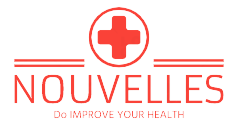The Best Post-Exercise Recovery Methods for Faster Muscle Repair
The Best Post-Exercise Recovery Methods for Faster Muscle Repair
Exercise not only provides physical benefits, like muscle strength and endurance, but it also has positive effects on mental health. However, it is equally important to focus on recovery after a workout to allow your muscles to repair and grow. Here are some of the best post-exercise recovery methods for faster muscle repair.
Hydration and Nutrition
Hydration plays a crucial role in the recovery process after exercise. Water helps to flush out toxins from the body and transport essential nutrients to the muscles. Dehydration can lead to muscle fatigue and cramps. It’s recommended to drink plenty of water before, during, and after a workout to maintain proper hydration levels. In addition to hydration, proper nutrition is equally important in promoting muscle recovery. Consuming a balanced meal with an adequate amount of protein, carbohydrates, and healthy fats helps to replenish glycogen stores and repair muscle tissues.
Include protein-rich foods:
Protein is essential for muscle repair and growth. Include sources of lean protein like chicken, fish, tofu, and eggs in your post-workout meal to aid in muscle recovery. Consuming protein within 30 minutes to an hour after exercise can help speed up the repair and rebuilding process.
Rest and Sleep
Rest is vital for muscle recovery. It’s important to give your muscles time to repair and rebuild. Aim for 7-9 hours of quality sleep each night to support muscle recovery and overall well-being. During sleep, the body releases growth hormone, which is essential for tissue growth and repair. Lack of sleep can impede muscle recovery and lead to decreased performance during workouts.
Practice relaxation techniques:
Incorporating relaxation techniques such as meditation, deep breathing, or yoga can help reduce stress and promote better sleep quality, aiding in muscle repair and recovery.
Active Recovery
Active recovery involves engaging in low-intensity activities such as walking, swimming, or yoga to promote blood flow and reduce muscle soreness. These activities can help flush out lactic acid and other toxins from the muscles, speeding up the recovery process. Active recovery also helps prevent stiffness and maintains mobility in the muscles.
Include foam rolling and stretching:
Using a foam roller and incorporating stretching exercises can help release tension in the muscles, improve flexibility, and reduce the risk of injury. Foam rolling after a workout can also aid in muscle recovery by breaking up adhesions and increasing blood flow to the muscles.
Cryotherapy and Compression Therapy
Cryotherapy, also known as cold therapy, involves exposing the body to cold temperatures for a short duration to reduce inflammation and aid in muscle recovery. This can include ice baths, cold showers, or cryotherapy chambers. Compression therapy, on the other hand, involves using compression garments like sleeves or leggings to apply pressure to the muscles, promoting better blood circulation and reducing muscle soreness.
Alternate hot and cold therapy:
Some athletes use contrast water therapy, alternating between hot and cold water immersion, to reduce inflammation and improve circulation for faster muscle recovery. This method involves soaking in a hot tub or sauna for a few minutes, followed by a cold water plunge, and repeating the cycle a few times.
FAQs
Q: Are there specific nutrients that aid in muscle recovery?
A: Yes, certain nutrients are essential for muscle recovery, including protein, which provides the building blocks for muscle repair, and antioxidants like vitamin C and E, which help reduce inflammation and oxidative stress in the muscles.
Q: How soon after a workout should I focus on recovery?
A: It’s recommended to start the recovery process immediately after a workout by refueling with a balanced meal, hydrating, and engaging in active recovery techniques like stretching and foam rolling.
Q: Can overtraining impede muscle recovery?
A: Yes, overtraining can lead to muscle fatigue, decreased performance, and impaired recovery. It’s important to listen to your body and allow for adequate rest and recovery time between workouts to avoid overtraining.
Q: Is stretching essential for muscle recovery?
A: Stretching helps improve flexibility, reduce muscle tension, and prevent injury, making it beneficial for muscle recovery. It can also help alleviate muscle soreness and stiffness after a workout.
External site links:
1. Medical News Today: https://www.medicalnewstoday.com/articles/323480
2. Healthline: https://www.healthline.com/nutrition/eat-to-recover-from-exercise
3. Verywell Fit: https://www.verywellfit.com/foods-for-fast-recovery-3121392



